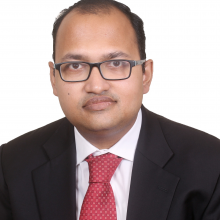Is your business decline causing a headache? Tips to make you feel good financially and regain your mojo

Finance & Accounting
243 week ago — 4 min read
Businesses are changing rapidly. What is good today may not last till tomorrow. This happens to many companies and the way they have been organised. I want to share a small example of one of our clients runs a trading business; however, after GST being brought into force, the margins vanished.
So what did he do?
He started working on another side of his dry fruit family business and added volumes there. Our belief as entrepreneurs is that if business is good, we are good. However, there is a limit to this pattern. We also need to add on to passive income.
He gradually started adding more capital to the business in more profitable categories, renegotiated the terms with buyers and vendors and created a passive income portfolio.
What has he done on the passive income side?
Since the business needed capital, only liquid funds are recommended to start with. This has helped him with flexibility and focus, which is vital in a trading business. Once the situation tides over, he gradually invested in equity-based opportunities. This is relatively a better way to face the downturn.
His patience paid off, and he now does gradual investments through the STP (systematic transfer plan) route. This not only gives him an interest but also helps to buy at different levels in a falling equity market.
The key lesson is to recognise and solve the problem at the starting point and understand our emotions, risk-taking temperament along with understanding what we need and what works for us.
For an additional example, Another client who has been running a travel business for years now. Margins are falling as online ticketing has picked up.
What is his success mantra?
He is adept at running a low-cost business. Also, he has delegated all process-related work to his staff who handles the same.
What does he do by way of investing?
He is more of an equity funds participant; he became one after he lost money in 2000. However, he still added to liquid and short-term funds as a part of his overall risk assessment. This has helped him weather the ups and downs of the equities as well as his business in a more structured manner. This enables him to maintain his peace of mind.
When equity markets go down, he adds at different levels for his passive income plan, which he will need over the next ten years.We have recommended a mix of conservative, balanced funds, large-cap, large and mid-cap oriented funds to take care of his goals.
Does he invest it in a lump sum or a staggered manner?
Usually, he invests 2-3 times a year when funds are available. Sometimes it is a lump sum. Most of the times we do an STP
What do we recommend now?
It depends on your circumstances. Everybody should think differently in terms of what is appropriate to them.
The key lesson is to recognise and solve the problem at the starting point. We can only do what we are in control of, and that is understanding our emotions, risk-taking temperament and understanding what we need and what works for us.
We need to go above the clouds to fly, then only we can realise our potential, particularly from a financial vantage point. May the force be with us.
Also read: Secrets about financial independence that can change your life post COVID
To explore business opportunities, link with me by clicking on the 'Connect' button on my eBiz Card.
Image source: shutterstock.com
Disclaimer: The views and opinions expressed in this article are those of the author and do not necessarily reflect the views, official policy or position of GlobalLinker.
Posted by
Anirudh Anand GuptaI am looking to connect with other business owners. Invite me to connect
View Anirudh 's profile
Other articles written by Anirudh Gupta
Annual Reflection on 4 Crucial Areas for Success
69 week ago
Most read this week













Comments
Share this content
Please login or Register to join the discussion